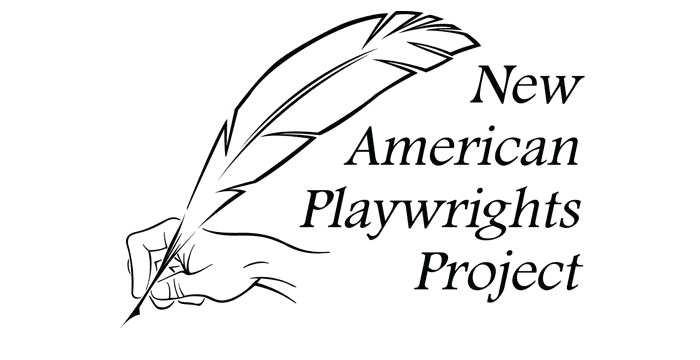CEDAR CITY — Four women’s lives were changed forever on November 22, 1963, when an assassin’s bullet struck and killed President John F. Kennedy. The stories of these four women—all wives of the men involved in this momentous historical event—are the subject of a new play, Six Seconds, which is receiving a powerful staged reading as part of the Utah Shakespeare Festival’s New American Playwrights Project.
 In the half century since the assassination occurred it has provided fuel for films, books, and television specials. Therefore, playwright Rose-Mary Harrington had a challenge to find a new perspective on the Kennedy assassination. By confining most of the action to the events leading up to the murder and focusing on the women, Harrington freshens up this old story with little known details and a focus on the women married to Lee Harvey Oswald, President Kennedy, Vice-President Johnson, and Texas Governor John Connolly. The result is a unique, emotional journey through history.
In the half century since the assassination occurred it has provided fuel for films, books, and television specials. Therefore, playwright Rose-Mary Harrington had a challenge to find a new perspective on the Kennedy assassination. By confining most of the action to the events leading up to the murder and focusing on the women, Harrington freshens up this old story with little known details and a focus on the women married to Lee Harvey Oswald, President Kennedy, Vice-President Johnson, and Texas Governor John Connolly. The result is a unique, emotional journey through history.
Harrington wisely eschews the two worst aspects of many retellings of the Kennedy assassination: conspiracy theories and maudlin sentimentality about Kennedy’s presidency. The former tendency attracts only the tin foil hat crowd (with Oliver Stone’s JFK being the only major exception), while a mythical American Camelot is not interesting to anyone who was not old enough to remember 1963. Instead, Harrington dwells on the coping mechanisms of each of these women as their men blindly navigate through their complicated worlds, oblivious to their wives’ emotional needs. This makes the characters of Six Seconds more like real human beings than encyclopedia entries written by a historian. It also makes all of the characters (including the men) people that I wanted to spend an hour and a half with.
Charles Metten‘s light directorial touch was well suited for this play. The simple staging focused my attention on Harrington’s words and unleashed my imagination so I could see in my mind’s eye a full production with sets, costumes, and props. The scene in the Russian bar, for example, was staged enough to give me something to look at, but was not showy or distracting. Metten added little touches to the reading, such as the women’s black shawls, that made the show memorable.
Tracie Thomason’s performance as Lady Bird Johnson is dignified and sweet, especially as she handles her husband’s reaction to the social rules of politics. Thomason’s exchanges with Sarah Greenman (who played Nellie Connolly) were authentic; their scenes often felt like two neighborhood ladies chatting about their husbands or planning a dinner party (with a guest who happens to be the president). I also appreciated Natasha Harris in the role of Marina Oswald as the character struggled with both a difficult husband and navigating a foreign culture. Finally, Samantha Allred was fine in the role of Jackie Kennedy, especially in the powerful monologue after the assassination.
Ironically, even though Harrington’s focus is on the female characters, the best performance came from Zack Powell as Lee Harvey Oswald. In Six Seconds Oswald is a man who is profoundly disappointed by almost every experience he has (the military, Russia, his return to the United States, married life), and Powell shows that Oswald isn’t some crazy nut, but rather a disturbed man who is reacting to a lifetime of frustration with the world. Harrington has written a great part for a male actor, and Powell fully capitalized on it.
Of all the staged readings of plays in development I have reviewed or attended, Six Seconds is the closest to being ready for a full production, thanks to the excellent period dialogue and the gradual rising tension that infuses the play as the action draws closer to the assassination. That’s not to say that the play is perfect. I would like the women’s first monologues moved to the beginning of the play. This would make those monologues serve as a mirror for the final scene, provide structure to the show, and increase the focus on the women. (As it stands now, Lady Bird Johnson is the only of the four women who has much dialogue for the first third of the play.) Also, LBJ’s banter about his visit to Taiwan needs to either be tightened or better justified. But the work is an excellent addition to the Utah Shakespeare Festival’s season, and I hope that the an artistic director at a regional theatre company gives it the full production that it deserves.
[box type=”shadow”]The Utah Shakespeare Festival staged reading of Six Seconds plays at 10 AM on August 9 and 27 at the Auditorium Theatre on the campus of Southern Utah University. Tickets are $10. For more information about the New American Playwrights Project, including details about the other two plays—Breakout and Hamlet’s Shakespeare—receiving a staged reading this year, visit www.bard.org.[/box]
